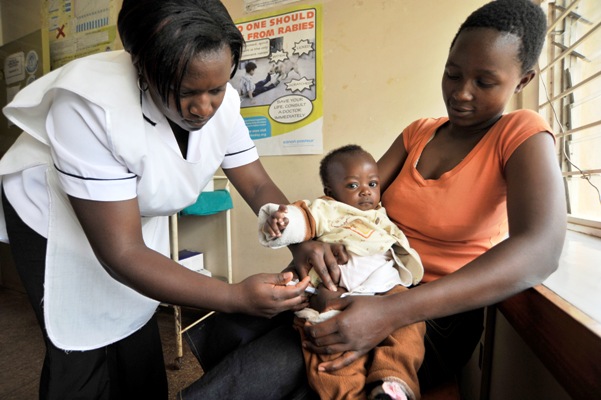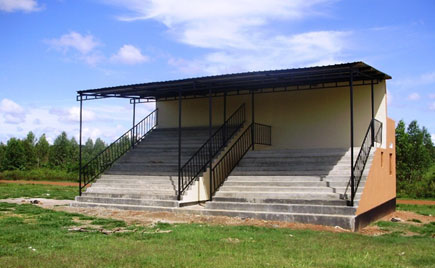As the world celebrated the International Day of the Girl Child yesterday, organizations in over ten countries launched the 33 Days to Power Up Immunization Campaign to hold governments accountable for the multiple promises they have made to support immunization, including this year’s Addis Declaration on Immunization.
In 2016, the continent made significant achievements of interrupting the wild poliovirus transmission for over one year; the near elimination of Meningococcal Meningitis A epidemic, and the significant reduction in disease burden and child mortality due to Measles.
“We recognize that progress has been made,” says Mr TOMEKPA Vincent, Secretary General of FENOS-CI in Ivory Coast.
He added: “Yet one in five African children still lacks access to all the necessary and basic vaccinations. “
In January 2017, African Heads of States endorsed the Addis Declaration on Immunization (ADI), through which they acknowledged that despite their endorsement of the Global Vaccine Action Plan (GVAP), they are largely off track. The ADI reinforces their commitment at the highest level of political engagement.
Immunization ranks among the most cost-effective health interventions, for girls and boys, delivering a high ratio of health benefits-lives saved and illness prevented-to cost, especially where disease burden is high. This means immunization is one of the best uses of limited public funds for health.
In Africa, for every $1 spent on childhood immunizations, you get $41 in economic and social benefits.
“Civil Society must keep track of government progress towards implementation of these commitments and ensure that they deliver if we want to reach the 2020 targets as set in the GVAP,” said Joyce Kilikpo Jarwolo of Public Health Initiative Liberia.
“Over these 33 days, we will track the vaccines, track the finances, track the legislation, and ask that our governments show us how the ADI is more than a declaration, but a true instrument for achieving success. The lives of our children depend on it,” explains Jackson Ndegwa, Vaccines and Policy & Advocacy Manager with Kenya AIDS NGOs Consortium (KANCO)
“We must keep the momentum throughout the year, but we are also making sure that we apply heightened pressure over these 33 days that are so important for Immunization.” Says Clarisse Loe Loumou, Board Member of the Gavi CSO Constituency.
“These key international days show not only what can be achieved through sustained and focused commitment as with Polio, but also that so much needs to be done to ensure that children do not die of Pneumonia.
It is also an opportunity as from today to ensure that equity as much as coverage is crucial to achieving universal access to immunization. Vaccines such as HPV that are of critical importance to girls must continue to be made available to girls everywhere.”
The 33 days to Power Up Immunization campaign is a continuation of what was started with the Africa Vaccination Week and World Health Assembly.
It was Signed by,
- Concern Health Education Project (Ghana),
- Muslim Family Counseling Services (Ghana),
- AFRIVAC (Senegal),
- Community Restoration Initiative Project (Uganda),
- Community Health and Research Initiative (Nigeria),
- Nigerian Women Agro Allied Farmers Association (Nigeria),
- PROVARESSC (Cameroon),
- Coalition 15 (Cameroon),
- KANCO (Kenya)
- FENOS-CI (Côte d’Ivoire),
- Public Health Initiative Liberia (Liberia),
- POSSAV (Guinea),
- Malawi Health Equity Network (Malawi),
- Children Advocacy Forum Sierra Leone (Sierra Leone),
- Confederation of Meningitis Organizations (CoMo),
- Niyel.





